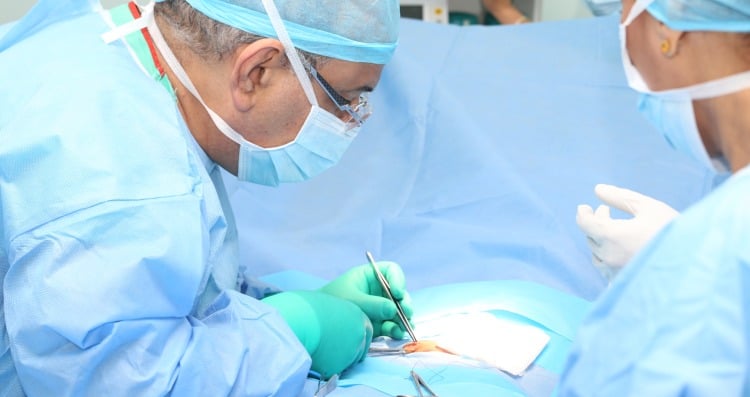Ethicon’s Proceed Hernia Mesh At Center of Controversy in New Lawsuit

On January 12, 2018, a Louisiana woman went to the hospital to undergo a routine hernia repair surgery. Proceed, a popular surgical mesh manufactured by Ethicon, a subsidiary of Johnson & Johnson, was implanted during the procedure. The mesh was intended to support the woman’s abdominal wall, encourage healing, and prevent the hernia from recurring.
Shortly after receiving the Ethicon Proceed implant, the woman began to experience several painful adverse health issues. Specifically, she suffered an infection, bowel perforation, and pain. These injuries are associated with defective hernia mesh patches. She underwent an emergency revision surgery the following day to remove the Proceed device.
Earlier this year, the Louisiana woman and her husband filed a hernia mesh lawsuit against Ethicon. The lawsuit claims that Ethicon:
- Knew, or should have known, that the Proceed mesh wasn’t a safe treatment for hernias
- Knew, or should have known, that the Proceed mesh was unreasonably dangerous
- Marketed a dangerous device despite knowing that it could cause severe complications, and
- Failed to warn her about risks associated with the Proceed hernia mesh device.
She wants the company to be held accountable for putting a dangerous product on the market.
Controversy Surrounding Polypropylene Hernia Mesh Patches
Ethicon’s Proceed hernia mesh device is one of several patches designed using polypropylene. Polypropylene is a type of thin, inexpensive, flexible plastic. It’s typically used in a variety of products, ranging from furniture to plastic bags.
Even though it has been used in surgical meshes for decades, it is not intended to be used in any permanent medical implants. Hernia meshes are designed to remain in patients for life.
Why is polypropylene used in hernia mesh patches if there are specific warnings against such a use? Initially, hernia mesh manufacturers believed that polypropylene could help to prevent the devices from oxidizing and degrading after surgery. However, recent studies reveal that polypropylene doesn’t prevent this from happening. Instead, the plastic increases the risk of inflammation in the body, which is directly associated with oxidation, dissolving, shrinking, and migration.
Ethicon Facing Thousands of Hernia Mesh Lawsuits
To date, thousands of hernia mesh lawsuits have been filed against Ethicon and Johnson & Johnson. Most of the lawsuits involve Physiomesh, one of the company’s other popular hernia patches. Ethicon did issue a recall for the controversial Physiomesh device in 2016. However, the company is still defending itself in state and federal courts across the country.
Many of the Ethicon hernia mesh lawsuits have been consolidated in multidistrict litigations (MDLs) and multicounty litigations (MCLs). These tools are used when several cases are based on similar facts and issues. Those cases are then transferred to be litigated in a single federal or state court. MDLs and MCLs help to make litigation more efficient and cost-effective for all involved. Ethicon hernia mesh cases are currently pending in Georgia and New Jersey.
